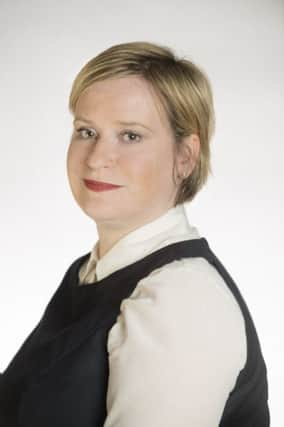Amanda Masson: All alternative methods of creating a family need professional advice


Assisted reproduction and alternative ways of creating family structures have been in the news a lot, prompting discussion within our team about how our role as advisors is evolving, too.
Grazia magazine carried an article about a surrogate mother carrying a baby for her cousin, while a Sky News report said improved IVF success rates are believed to have contributed to a fall in the adoption rate in England.
Advertisement
Hide AdAdvertisement
Hide AdThe rate of adoption is falling in Scotland, too. In 2015, there were twice as many children on the adoption register than prospective parents able to offer those children a home.
At Harper Macleod, we have seen an increase in enquiries about both adoption and surrogacy agreements, which are becoming more mainstream as people become aware of the availability and legal implications of surrogacy arrangements and accessibility of fertility treatments enabling the birth of a child with a genetic link to one or both parents.
Many professionals working within the care sector are, however, concerned about the effect of scientific advances on the likelihood of children within the care system finding their “forever home”.
Concerns have been compounded by recent Supreme Court decisions on permanency and adoption following which several applications for adoption orders have been refused by the Court, a situation which may deter potential adoptive parents from pursuing that route.
There are many more options available in terms of creating a family unit than there were. No one way is right or wrong, with various factors influencing someone’s decision on the creation of their family.
Of course, family lawyers play just a small part in assisting those looking to have a family. To get an insight into some key advances in his specialism, as well as societal changes accompanying them, I spoke with Dr Marco Gaudoin, Medical Director at fertility clinic GCRM Fertility.
Dr Gaudoin explained: “The first ‘test tube baby’, Louise Brown, was born in 1978 and over the subsequent 40 years the technology has developed enormously. The development of ICSI {Intracytoplasmatic Sperm Injection] in the early 1990s has allowed men with low sperm counts to have children who are biologically their own, rather than their partners having to use donor sperm.
“Embryo culturing methods have improved dramatically such that embryos can be cultured reliably until day-5 of development, resulting in embryologists being able to select the best embryo with greater confidence. More recently time-lapse image analysis of embryo development has ushered in the era of computer technology to refine further the ability of embryologists to select the best embryo.
Advertisement
Hide AdAdvertisement
Hide Ad“These developments have resulted in higher birth rates per embryo transferred, but more importantly in higher rates of elective single embryo transfer with a subsequent reduction in the multiple pregnancy rate (with its inherent increased risks to the pregnancy).
“On the cultural/societal side, IVF is now ‘mainstream’ and the ability to talk about ‘infertility’ is less of a taboo, although barriers still need to be broken down. Older women have greater access to egg donation programmes whilst same-sex marriage is commonplace and two gay men wanting to have a child using a surrogate is much more socially acceptable. There are still challenges, not least of which is the lack of egg donors and surrogates respectively.”
“Fewer and fewer new-born babies are put up for adoption annually, but the incremental improvements in IVF success and the changes in societal attitudes mean more people can have a child. Research must continue, particularly into the biology of implantation, but we have come a long way since Louise Brown.”
Whether someone wishes to explore adoption or surrogacy, it is important to chat through the various options with a trusted adviser on the implications of each process.
This is especially important with surrogacy, well before a pregnancy is achieved, as the timing of when the relevant documents are signed is vital to ensure that the process is managed smoothly. Furthermore, it is also important that intended parents appreciate that the laws pertaining to surrogacy are different in Scotland and England, so where a baby is born must also be taken in to consideration.
Amanda Masson is a family law specialist at Harper Macleod